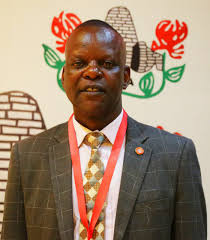Tariro (not her real name) struggles to recall what happened when she was raped, but the medical records show she was indeed raped.
According to her mother, the courts threw out the case because of conflicting statements and the sexual offender walked away a free man.
“My child is mentally challenged and she struggles to give coherent statements, but the truth is she was raped by a person I know and nothing was ever done to the perpetrator. What pains me is the emotional trauma my child went through. I am only waiting for God’s justice,” said Tariro’s mother.
One mentally ill woman who has been roaming the streets of Harare for years is now heavily pregnant. Unconfirmed reports said she was gang raped by a group of street kids in the capital.
In March this year, a male nurse was arrested for allegedly raping a psychiatric patient at Ingutsheni Hospital in Bulawayo.
The man, who cannot be named to protect the victim, was arrested after he allegedly invited the woman receiving treatment at the government institution to a bathroom for a “bath”.
Keep Reading
- Chamisa under fire over US$120K donation
- Mavhunga puts DeMbare into Chibuku quarterfinals
- Pension funds bet on Cabora Bassa oilfields
- Councils defy govt fire tender directive
Bulawayo police spokesman Inspector Mandlenkosi Moyo confirmed the incident. He said the accused would be taken to court to face rape charges.
“We are investigating the case of an Ingutsheni employee who raped a patient,” he said.
Inspector Moyo said the nurse called the patient who innocently obeyed, only to be greeted by passionate kisses before being molested and raped once. Although she is mentally unstable, the woman was not amused by the act because it happened without her consent.
She went on to tell others at the hospital who were reluctant to take up the case until hospital authorities investigated the matter.
The patient positively identified the culprit leading to his arrest.
These cases are just a tip of the iceberg on what is happening in our society. Many psychiatric patients have gone through the same ordeal and most cases go unreported.
A Harare magistrate who spoke on condition of anonymity said the country’s courts were overwhelmed with rape cases involving mental patients.
“It’s actually shocking that some people in society have decided to be like lions of the jungle which prey on weak animals. These people target the most vulnerable group because they feel their chances of being caught are slim,” she said.
He said his organisation was overwhelmed by cases of mental patients who fall victims to sexual molesters.
“We get over 30 cases of mentally challenged patients being raped on average every two months and we believe more cases in the remote areas go unreported, “said Kwenda.
Kwenda added: “Many victims and their families say that although they make sure to seek medical attention at clinics, they refuse to report the incidences to the police for reasons ranging from fear that their family members will find out to lack of faith in the legal and justice systems. Some say the stigma attached to rape in Zimbabwe prevents victims from seeking care, while others say there aren’t enough resources.”
Innocent Chingwaru, a leader of the Faith-Based Council of Zimbabwe, a Christian organisation, said deepening poverty collapsed traditional family “safety nets” and eroded age-old African family support mechanisms.
“It is a depressing scenario. In the unfolding crisis, this is a critical time that calls for action at all levels of our society,” he said.
According to police statistics, between September 2 and 13 last year, the country recorded 124 rape cases.
Chief police spokesperson Senior Assistant Commissioner Wayne Bvudzijena confirmed the emerging trends.
“These cases were recorded between September 2 and 13 this year and we are concerned by this sudden increase where we recorded 25 murder cases, 18 armed robberies and 124 rape cases of juveniles,” he said.
Bvudzijena attributed some rape cases to negligence by guardians and parents who left juveniles in the custody of relatives and strangers for long periods.
“It is at this particular time that persons known to the relatives rape these girls in most cases. We appeal to the courts to mete out deterrent punishments to those convicted of such offenses,” he said.
Bvudzijena said the highest number of rape cases were recorded in Harare, Midlands and Mashonaland East provinces.





